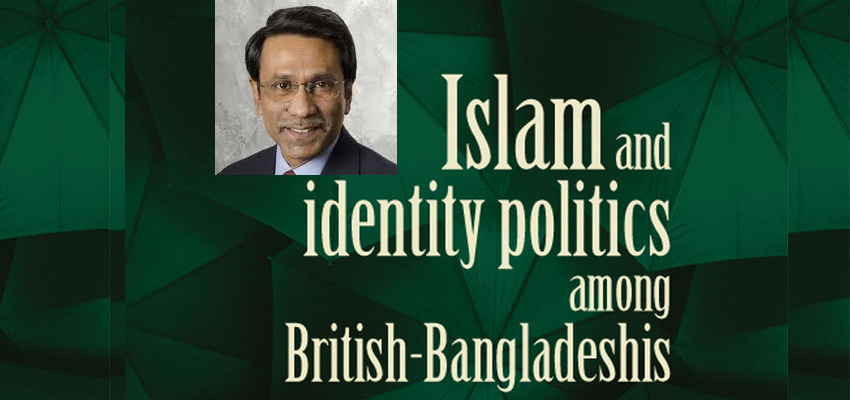The question of identity can be found in something as simple as a Facebook page posting. After a brief trip to Washington, D.C., Ali Riaz posted on Facebook that he was heading home.
“For me, home meant Normal, Illinois. But when some people saw that, they assumed I was heading to Bangladesh,” he said of the country where he was raised. “There becomes a question of, ‘What is home?’ and ‘Where do I feel a part?’”
Riaz, a University Professor of politics and government, delved into the question of identity in terms of politics with his recent book Islam and Identity Politics Among British-Bangladeshis: A Leap of Faith. “We live in a world of multiple identities. Which one comes to play at what point? How we interact with society, how we are seen and want to be seen. That is identity politics,” he said.
There is no one element or cause creating a person’s identity. “The individual decides, the community decides and the state decides. All these things come together in different ways and different times. It’s like chemistry; it depends on when elements combine,” he said.
All identities are constructed, noted Riaz. “It is not natural. We acquire them. Sometimes you are told who you are by external forces – by a nation or by a community.” He mimics filling out a form, ticking off the possible choices. “Are you white, black, Asian or Pacific Islander? In this case, you are being told your identity by others.”
The main marker of identity was once ethnicity, lumping those together that spoke the same language or had ancestors from the same area. “Think of it as the way people can identify themselves as Italian American or Irish American,” Riaz said.
Examining British policies impacting those of Bangladeshi descent, Riaz found a slow transformation in identity. “For the Bangladeshi community in Britain, religion is becoming more and more salient as a marker of identity,” he said. “They may identify themselves as Muslim, even more than British.”
British government and policies have encouraged communities to embrace religion as a factor of identity, said Riaz. “It became easier for the government to recognize people as Muslim, rather than from Pakistan, Bangladesh, Somalia, etc., thinking they can address the needs of all of these people in a similar fashion,” he said. Many underrepresented communities embrace this concept as a way to avoid being marginalized. “The thinking is that if we are fragmented as Pakistani or Indian, etc., then we can come together and have a greater voice as Muslims.”
Making religion a priority of identity is not isolated to Britain. Riaz noted that since the 1980s, there has been a move toward a broader, larger identity across Europe. “On the one hand, we have this European Union, moving away from individual countries into a more European identity. On the other hand, a broader Muslim identity within Europe.”
In the case of Europe, and in particular Britain, Riaz pointed to an acceptance of multiculturalism playing a large role in identity. “Britain is not a monoculture. It is not mono-religious. It is multi-religious, multi-ethnic, multi-national, multicultural. So all these things help people to keep their identity, but there can be a down side if there is too much separation. It can lead to parallel lives.”
While religion is emerging as a strong marker of identity for underrepresented groups in Britain, the United States tends to concentrate intermittently on race.
“Identity is not something to explore once every four years to explain how the Hispanic community voted,” he said. “And it should not be only about race. Race is only a part of a larger picture. We must face the reality that the U.S. is a multicultural, multi-ethnicity, multi-race country. And we should explore those identities.”
For Riaz, who spent his sabbatical at the Woodrow Wilson Center refining how we perceive identities is all part of understanding how the world is evolving. “We live in a world that is globalized, not only in terms of business or communication. We live in a world that has multiple ways of defining who we are. Those constructions we create when we come together as a community, as a society, can help us learn to interact.”

